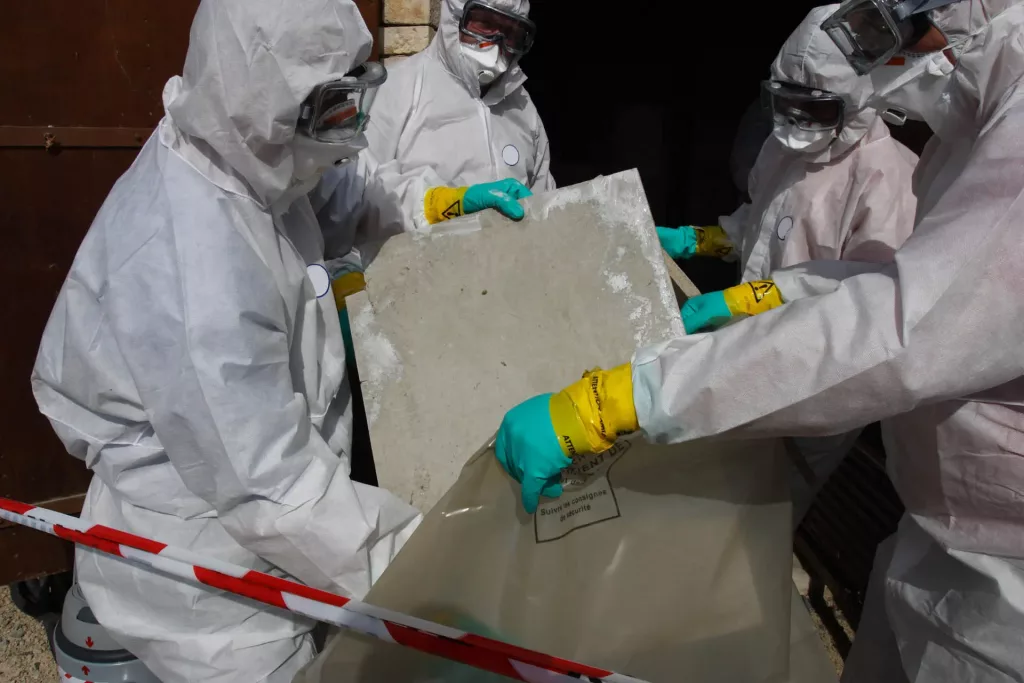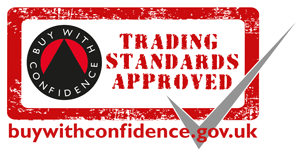If you’re arranging an asbestos survey, chances are you’ve been advised to do so as part of a legal requirement or building project, or perhaps you’re simply being cautious about the safety of your property. Whatever the reason, knowing what to expect can help take the stress out of the process and ensure you’re well prepared.

Why You Might Need an Asbestos Survey
Asbestos was widely used in UK buildings right up until the late 1990s. Although it’s now banned, it’s still present in millions of properties, especially those built before the year 2000. When materials containing asbestos are left undisturbed, they’re usually safe. But if they’re damaged or disturbed during building work, they can release harmful fibres into the air.
Legally, if you manage or own a non-domestic building, you’ve got a duty to manage asbestos under the Control of Asbestos Regulations 2012. And if you’re planning any renovations, demolitions or even buying or selling a home, an asbestos survey may be needed to assess the risks and avoid delays or costs down the line.
Types of Asbestos Surveys Explained
There isn’t a one-size-fits-all approach. The type of survey you need depends on what you’re planning to do with the property.
Management Survey
This is the most common type and is used to locate asbestos-containing materials (ACMs) that could be disturbed during normal occupancy or maintenance.
Refurbishment and Demolition Survey
Required before any major building work or demolition. It’s more intrusive and aims to identify all ACMs that might be affected during the project.
Homebuyer Asbestos Survey
Useful for residential property purchases, this provides peace of mind by checking for potential asbestos issues before completing the sale.
Before the Survey: What You Need to Know
Once you’ve booked in a survey, your surveyor will usually ask for some basic details about the property, such as its age, any building plans, and whether any previous surveys have been done. You may also need to arrange access to certain areas like lofts, basements or locked storage spaces.
If you’re a business or managing a commercial property, it’s worth notifying your staff or tenants ahead of time, especially if the survey will take place during working hours.

During the Survey: Step-by-Step Process
Here’s what typically happens on the day of the survey:
1. Visual Inspection
The surveyor will carry out a detailed visual inspection of the property, looking for signs of asbestos or suspect materials.
2. Sample Collection
Small samples are taken from any materials that look suspicious. This might include textured coatings, pipe lagging, insulation boards, floor tiles and more. Don’t worry – surveyors are trained to do this safely and with minimal disruption.
3. Use of PPE
The surveyor will wear appropriate protective equipment to ensure their safety and avoid contamination.
4. Duration
A standard survey usually takes a few hours, depending on the size and layout of the property. Refurbishment or demolition surveys may take longer due to their more invasive nature.
After the Survey: What Happens Next
Once the physical survey is done, any samples are sent off to a UKAS-accredited lab for testing. This ensures that the results are accurate and recognised as meeting national standards.
You’ll then receive a detailed asbestos report. This will outline:
- Whether any asbestos was found
- The type and condition of the materials
- The level of risk involved
- Recommended next steps (e.g. management, repair or removal)

What to Do If Asbestos is Found
Finding asbestos doesn’t always mean you need to remove it straight away. If it’s in good condition and unlikely to be disturbed, it can often be safely managed and monitored.
However, if it’s damaged or likely to be affected by future works, your report may recommend removal. In either case, a proper management plan will help you stay compliant with regulations and keep everyone safe.
Common Questions About Asbestos Surveys
Will the survey damage my property?
Only small, targeted samples are taken – nothing that would cause major damage. Any holes made are typically sealed on the spot.
How much does it cost?
Costs vary depending on the type of survey and the size of the property. As a rough guide, residential surveys start from around £200, while commercial surveys may cost more.
Can I be present during the survey?
Yes, you can – but it’s best to give the surveyor space to work. They’ll let you know if certain areas need to be clear or vacated for safety reasons.
Final Thoughts
An asbestos survey might seem daunting at first, but it’s a straightforward and essential step in keeping your property safe and compliant. Whether you’re managing a commercial building or buying your first home, understanding the process helps you make informed decisions and avoid costly surprises later on.
If you’re unsure about which type of survey you need, or what your legal responsibilities are, it’s always best to speak to a qualified asbestos professional. The Smart Asbestos team can guide you through it all safely and legally. Give us a call on 01623 272 611 to find out more or book a survey. Our asbestos survey services cover Nottingham, Sheffield, Leicester, Derby, Mansfield and more!
Need some advice about Asbestos waste?
Call us on 01623 272 611 and we'll be happy to help
